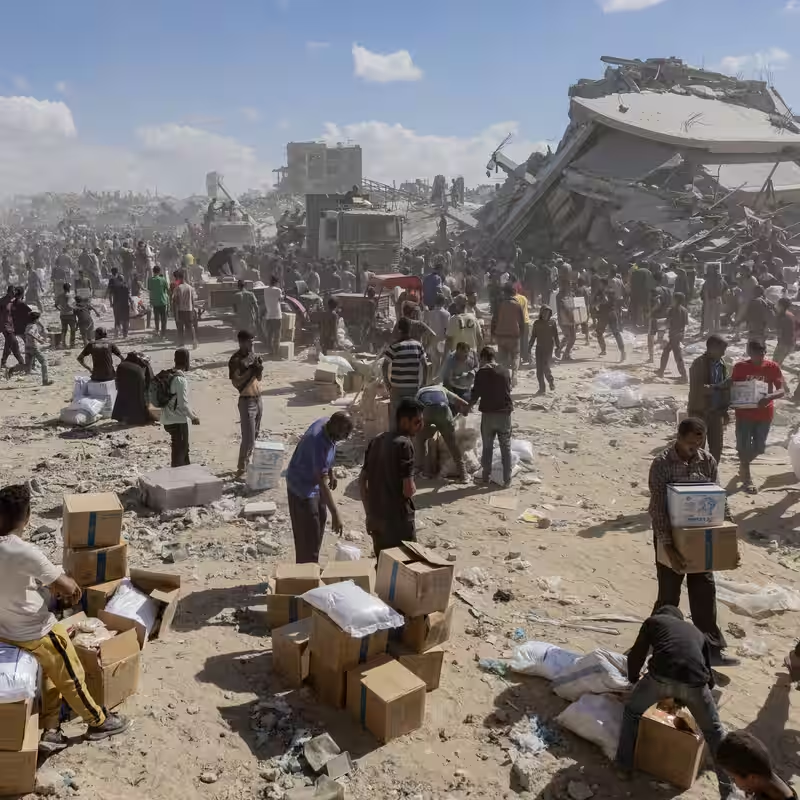With a fragile cease-fire holding between Israel and Hamas, attention is shifting from war to reconstruction—and the staggering price tag that comes with it. According to the World Bank, rebuilding Gaza could cost as much as **$53 billion**, covering everything from homes and hospitals to water systems and schools. But who will foot the bill—and can peace hold long enough for the work to begin?
Table of Contents
- The Scale of Destruction in Gaza
- What’s Included in the $53 Billion Estimate?
- Potential Funders: From Brussels to Abu Dhabi
- How Peace Could Unlock Middle East Investment
- Risks and Ethical Concerns
- Sources
The Scale of Destruction in Gaza
After more than a year of intense bombardment and ground fighting, much of Gaza lies in ruins. The United Nations estimates that over 60% of residential buildings have been damaged or destroyed, along with critical infrastructure like power grids, sewage treatment plants, and medical facilities.
“It’s not just about bricks and mortar,” said Hugh Lovatt of the European Council on Foreign Relations. “It’s about rebuilding a functioning society from the ground up.”
What’s Included in the $53 Billion Estimate?
The World Bank’s February 2025 assessment outlines major cost categories:
| Category | Estimated Cost |
|---|---|
| Housing & Urban Reconstruction | $22 billion |
| Water, Sanitation & Electricity | $11 billion |
| Healthcare & Education Facilities | $9 billion |
| Roads, Transport & Public Infrastructure | $7 billion |
| Economic Revitalization & Job Creation | $4 billion |
Who Will Pay to Rebuild Gaza?
No single country is expected to shoulder the burden alone. Early signals point to a coalition of international actors:
- European Union: Brussels has signaled readiness to fund “first-phase” humanitarian and infrastructure projects within months.
- Gulf States: The UAE and Qatar may contribute, though political sensitivities around Hamas complicate direct aid.
- United States: Likely to support multilateral efforts but unlikely to fund reconstruction directly without strict oversight.
- Private Investment Funds: Already eyeing lucrative contracts—but raising concerns about transparency.
How Peace Could Unlock Middle East Investment
A lasting cease-fire doesn’t just enable rebuilding—it could reignite stalled regional deals:
- BP and ADNOC were close to a $2 billion deal for Israeli natural gas fields before the war; talks may resume.
- UAE-Israel tech partnerships in AI and data centers could expand, with Israeli firms tapping Emirati infrastructure.
- Morocco** recently purchased $120 million in Israeli drones, signaling growing defense-tech ties.
- Chevron’s $35 billion gas export deal** with Egypt and Israel aims to double eastern Mediterranean gas flows by 2029.
“This peace agreement could start to unlock investments,” said Middle East analyst Jamie Ingram.
Risks and Ethical Concerns
Despite optimism, major hurdles remain:
- No clear plan to disarm militant groups or ensure long-term security.
- Fears of “backroom deals” that bypass Palestinian authorities or local communities.
- Questions about whether reconstruction will address root causes of instability—or just rebuild the status quo.
“My concern is you end up with contracts awarded to private funds and foreign governments with little accountability to Gazans themselves,” Lovatt warned.




